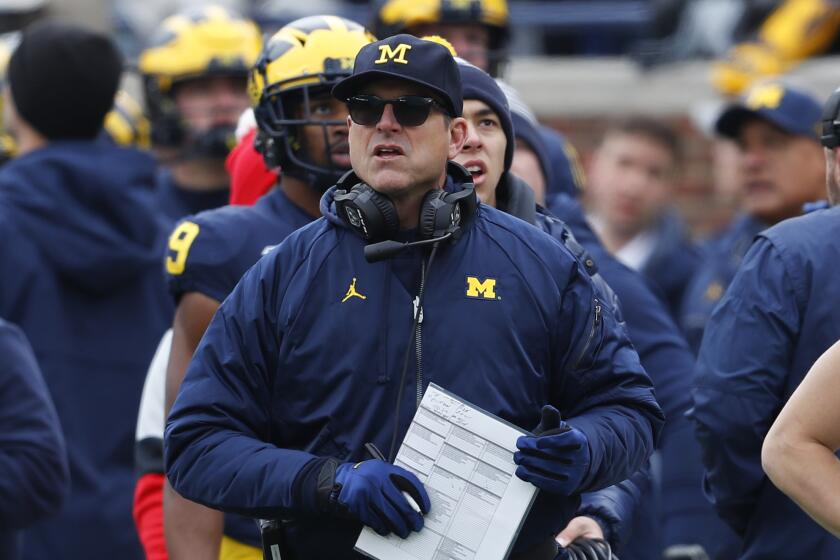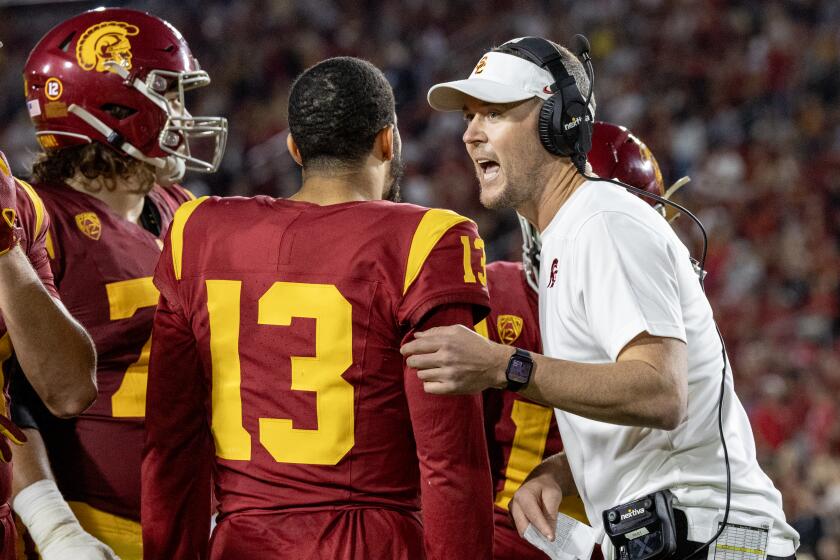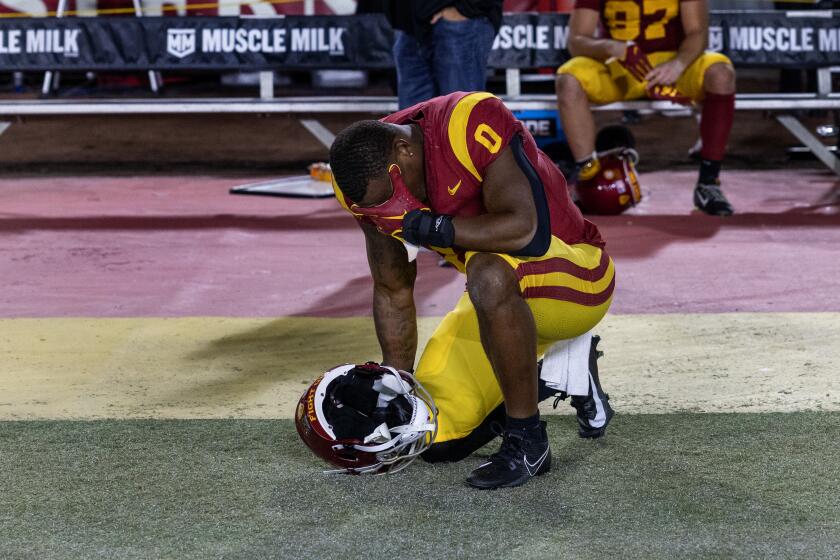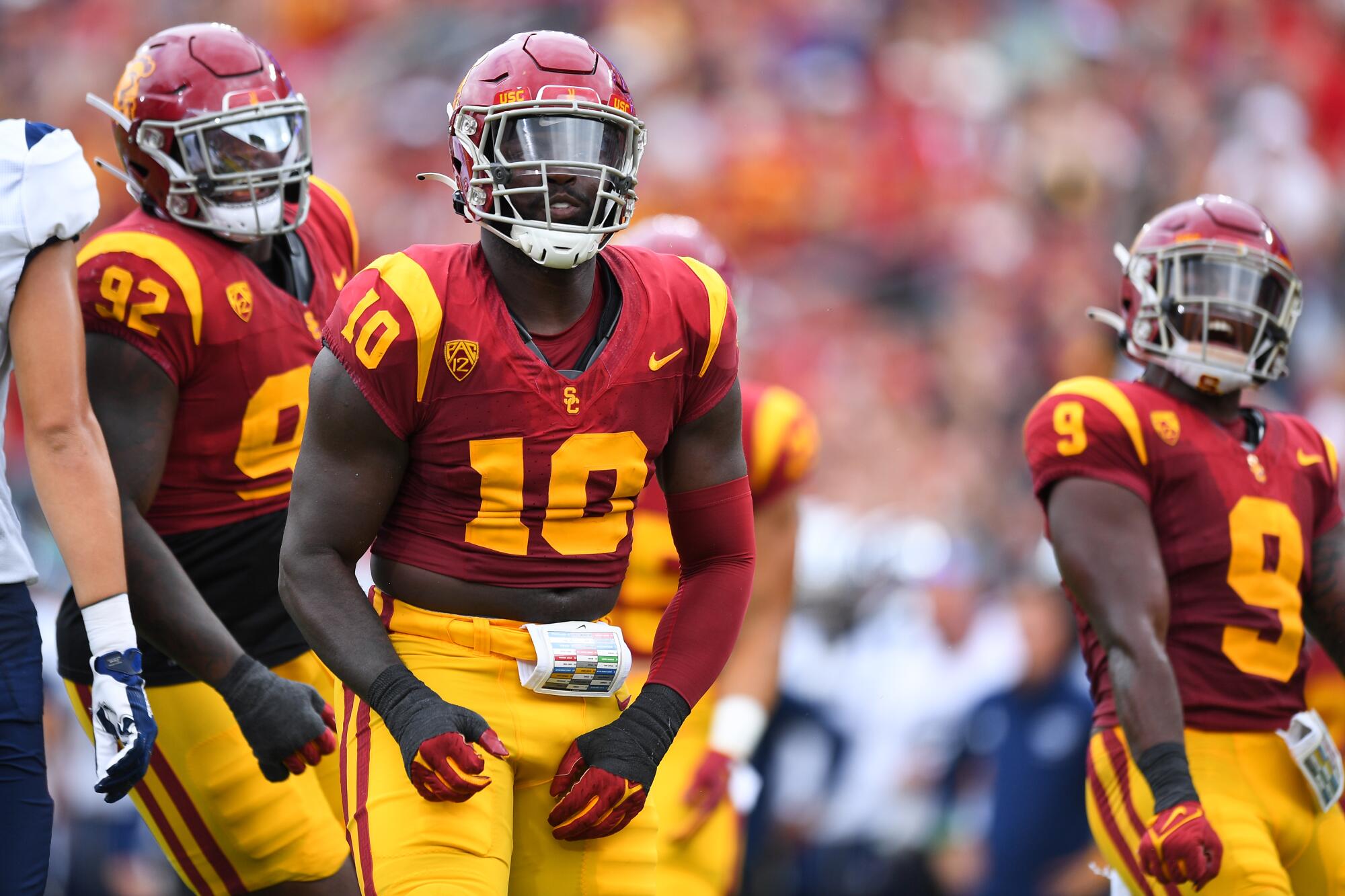
- Share via
Jamil Muhammad knew he was a quarterback as soon as any kid could grasp such a thing. He was 5 years old, the youngest at the time in a football-obsessed family. Each of his three older brothers — Deandre, Marquez and Terrance — played the game — two of the three went on to play college ball — but it was Terrance, the only quarterback of the three, who Jamil watched with a particular sense of awe.
As quarterback, he was the one everyone else relied on, the engine that made the offense go. And boy could Terrance go. A dual threat at Sparkman High outside of Huntsville, Ala., he could make something out of nothing. And watching his brother, young Jamil became convinced he was destined for something similar. He felt the same as he grew up devouring performances from Cam Newton, Lamar Jackson, Johnny Manziel, soaking in their every nuance. It was like the position was a part of his DNA.
Like a lot of teams, Michigan has benefited from stolen signs, but will the NCAA find the program went beyond the accepted methods of decoding signs?
It still feels that way sometimes, even now, three years after Muhammad had to give up quarterback for good. He didn’t have much choice in the matter. He’d clung to quarterback as long as he could, resisting a switch to defense, even as every step of the way since high school had been pushing him in that direction. Promises went unfulfilled. Faith was tested. At one point, amid the turmoil, Muhammad said he hit “rock bottom.”
“This sport is [about] having to fight, and having the will to keep going when most people quite frankly would quit,” Muhammad says, “but I wasn’t raised by quitters.”
Now, as he looks back on the bumpy path he took from Vanderbilt to Georgia State to USC, Muhammad calls it destiny. In L.A., he’s thriving as the Trojans top pass rusher, with six sacks in seven games. Watch him burst into the backfield, speeding around blocks, trampling past offensive tackles, and you’d be hard-pressed to believe this wasn’t the plan all along.
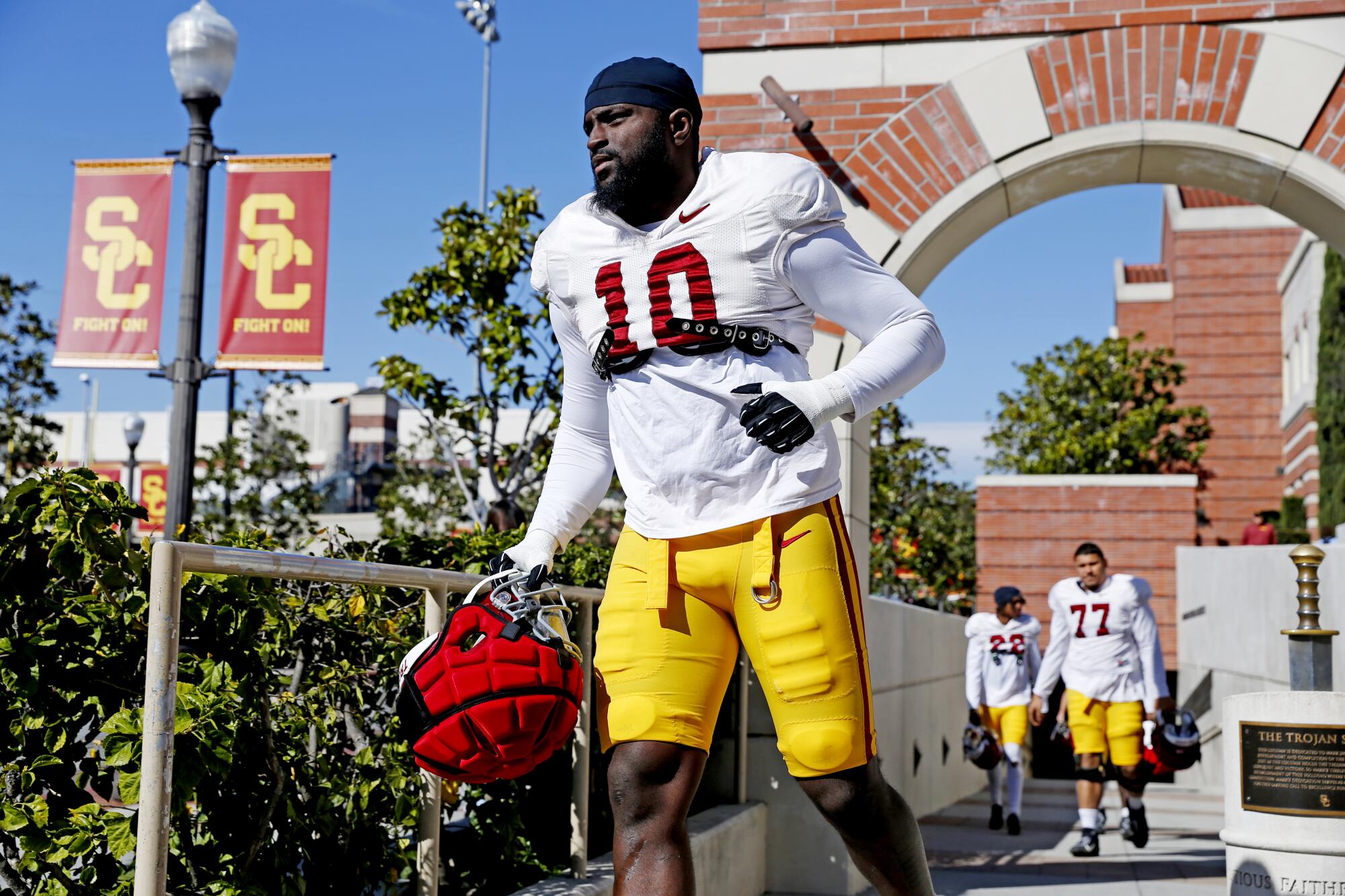
Muhammad chalks it up to fate that he ended up as a linebacker in L.A.. He swears the saga behind his position change is behind him. He doesn’t think much about quarterback anymore, he says. “I’m excited for where I am right now,” he assures.
Still, throw on his old highlights, see the dual threat ability and the uncommon instincts, and it’s hard not to wonder. His father sure does. Shaft Muhammad helped guide Jamil toward quarterback. Even coached him in little league. No one knows better what Jamil was capable of, and no one was more frustrated by how that potential was disregarded. It still sticks in his craw.
“Listen, we’re grateful for where he’s at right now,” Shaft says. “But he could’ve played quarterback at the level he’s at right now, without a doubt.”
And maybe he would have, had any number of circumstances been different along the way. Or maybe he was always meant to end up in the exact spot he is now.
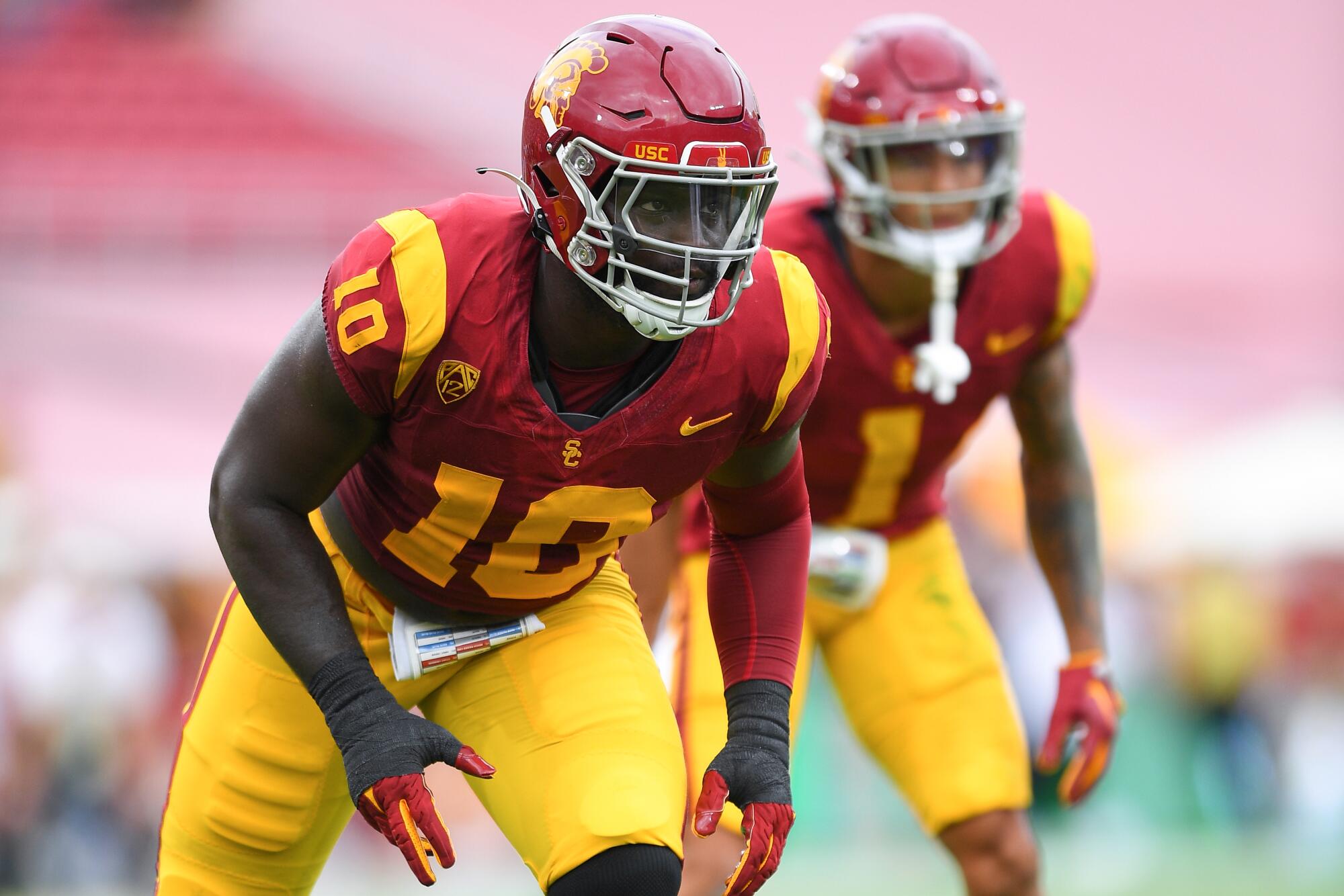
Jamil was a sophomore at James Clemens High when the suggestions first started. Alabama defensive coordinator Jeremy Pruitt took notice of him at an offseason practice. Afterwards, he told the coach, Wade Waldrop, that Alabama, the school where Muhammad’s uncle starred, would offer Jamil that very day if he’d consider playing defense. So Waldrop posed the premise to Jamil, one he’d pose many more times after that.
“Coach, I’m a quarterback,” Muhammad responded.
Alabama never offered. Waldrop respected the determination, but told Muhammad that he might see more offers if he was on the other side of the ball.
Muhammad wouldn’t bite. Even as other top coaches made a similar pitch.
“Kirby Smart really wanted to see me on defense,” Muhammad said of Georgia’s coach, “and I told him no.”
He’d worked too hard at the position to give up now. Plus he knew well enough how quarterbacks like him had been marginalized by the same sort of suggestions.
“I started to see around then how difficult it was for quarterbacks of color,” Muhammad said, “and I thought to myself, I’m going to make something happen out of this.”
Year 2 of the Lincoln Riley era at USC has been marred by back-to-back losses that have destroyed their national title chances. Why is Riley failing?
It seemed he was on the cusp soon after his sophomore year. Muhammad was an ideal fit at the helm of Waldrop’s RPO-based offense, able to take off at any time, like his brother Terrance, or heave it deep, if necessary. He already had an offer to play quarterback at Mississippi State. It was only a matter of time, he hoped, before more rolled in.
Then, just before the season, Muhammad tore his ACL. “It destroyed our team,” Waldrop said.
It also set Muhammad back. He was forced to sit out his entire junior season, the most critical stretch in any uncommitted player’s recruiting process. Any offers he had before the injury dried up.
By the time he returned to action as a senior, most schools already had their plans locked in at quarterback. But Derek Mason saw something in Muhammad that told him to make room.
As Vanderbilt’s coach, he was convinced Muhammad could play quarterback. Or anywhere else, for that matter.
“He could flat out get it,” said Mason, who now works at SEC Network. “I just saw tremendous athletic ability. He had leadership skills. He had the ability to put an imprint on a game. I thought he was either going to be an extremely good quarterback or an extremely good defensive player.”
The opportunity to play quarterback was what sold Muhammad. He cut off any other interested schools and enrolled at Vanderbilt early, eager to compete for the starting job.
Mason insists he thought Muhammad was Vanderbilt’s “next dude” at quarterback. But not long after he arrived, Muhammad says, other coaches on staff started being oddly vague about his future. When Muhammad threw three touchdowns in four drives during Vanderbilt’s spring game, what felt at first like a breakthrough moment instead became a breaking point for Muhammad at the school.
His father, Shaft, says that Vanderbilt coaches began making off-putting comments that got back to him about Muhammad’s ability to play the position. Jamil said it started to feel like he’d been written off. He couldn’t understand why.
Not long after that Muhammad was approached by Vanderbilt officials posing questions about the veracity of his ACT score. He and his father say that Muhammad was asked by Vanderbilt that spring to retake the test.
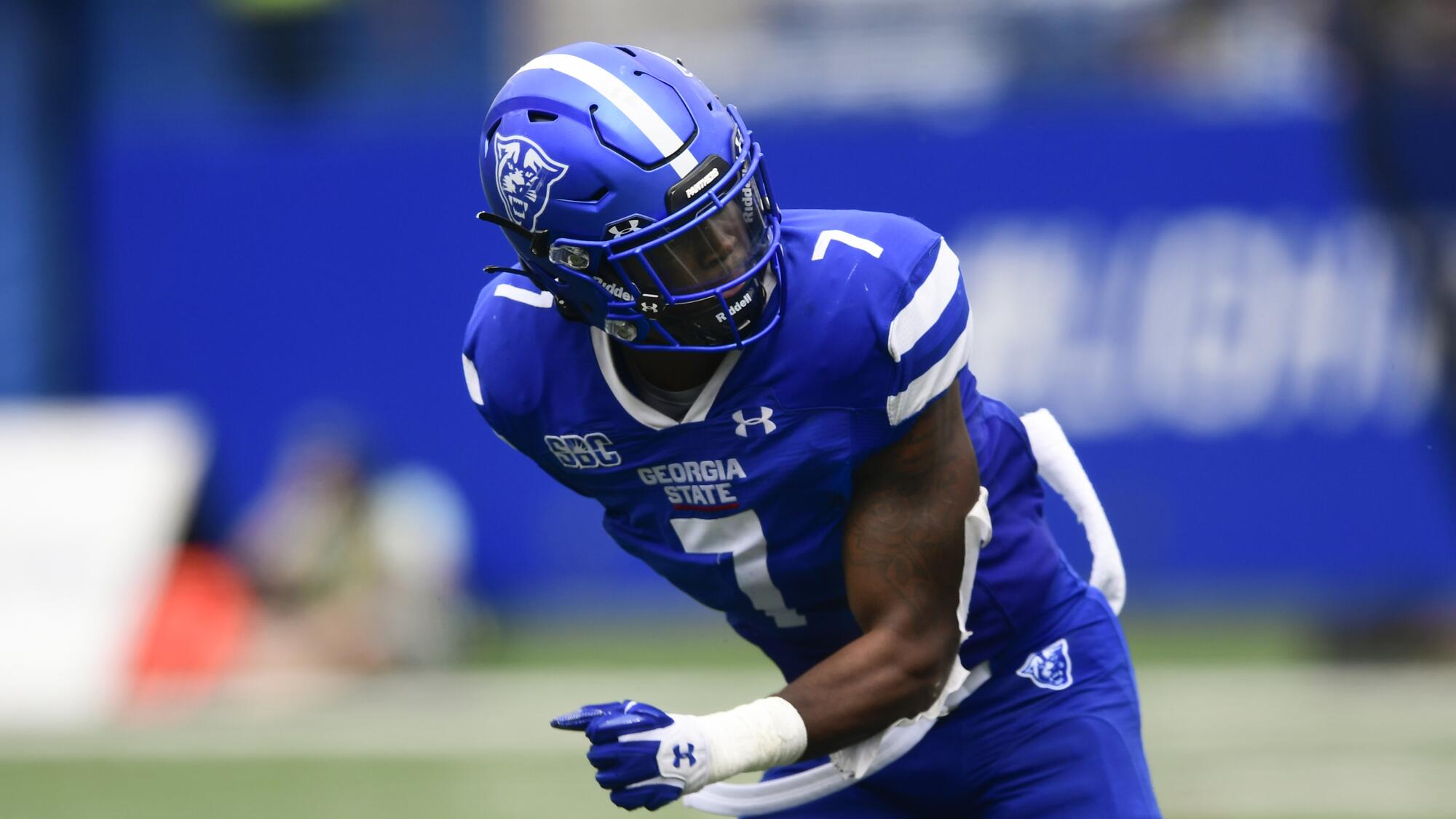
The suggestion stunned Muhammad, whose father said he scored a 33 on the standardized test during high school. Why would he need to take the ACT again? And why now? He’d already been at Vanderbilt for a semester and kept a GPA better than 3.0.
“He could’ve went anywhere with his [ACT] score,” Shaft Muhammad said. “But they didn’t think he could score like that — and without any reasonable cause.”
When the family went to Mason, Shaft recalls, he said it was “above his pay grade.” When they asked the university for an explanation, Vanderbilt officials told them they didn’t have to give one.
At the time, Shaft was furious — “I was ready to take it all the way to the Supreme Court,” he says — but upon speaking with an attorney, he learned indeed that the family had little recourse.
A spokesperson for Vanderbilt, in response to questions about Muhammad’s situation, said the university does not comment publicly on student academic records.
Mason told The Times that he “can’t remember every detail of how that went,” but still expected that Muhammad “was going to get the opportunity to play quarterback at Vandy for us.” He said Muhammad expected to have that opportunity right away.
Neither would get a chance to see how it worked out.
USC coach Lincoln Riley said it’s ‘fair to say [expectations] got to this team’ after the Trojans struggled to hold off Utah at the Coliseum Saturday.
The family still isn’t clear why Vanderbilt would cast doubt on Muhammad’s test scores. Nor do they understand why the relationship with Vanderbilt’s football staff soured so quickly.
But it felt to them like a message was being sent, for one reason or another. It left Muhammad feeling miserable.
“That was just the last straw for us,” Shaft said. “This is definitely not the place for you.”
By the time he decided to transfer, it was May — pretty late in the game to find a new school. The transfer portal didn’t exist yet. But Waldrop made some calls. One of his staffers was friends with the offensive line coach at Georgia State. It was the only school that offered Muhammad a shot at quarterback.
But when he arrived, that opportunity never quite materialized. The suggestions about changing positions started up again. Muhammad knew this time the writing was on the wall. When they finally approached him about a change, he was worn down.
So he relented, with one request: If he was going to leave quarterback behind, he wanted to play defense.
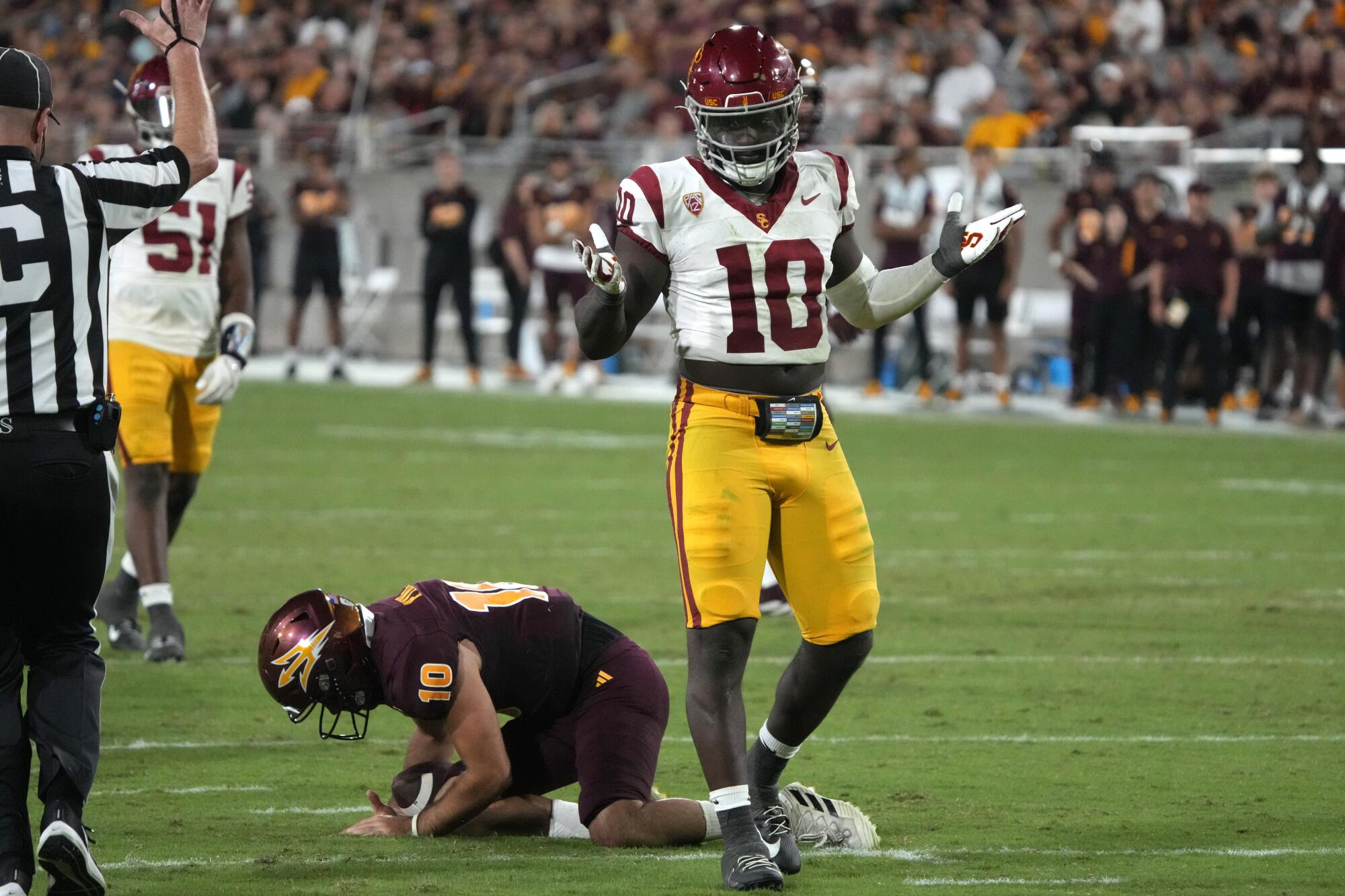
Lincoln Riley was intrigued by what he saw on tape. The explosion. The athleticism. The bend. The raw, natural talent you look for in an edge rusher. Then, there was his history at quarterback, which fascinated Riley. Why not reach out? Maybe he could help fill the void in the Trojans pass rush.
When Jamil Muhammad saw the direct message last December from USC defensive coordinator Alex Grinch, he could barely believe it.
“I couldn’t focus on class for the rest of the day,” Muhammad said. “That was a great day.”
Ten months later, Muhammad is one of the bright spots in a somewhat dark start to the season for USC’s defense.
His experience as a quarterback has undoubtedly helped speed up that development. But after years of holding onto his past at the position, Muhammad has tried this season to think less like a quarterback.
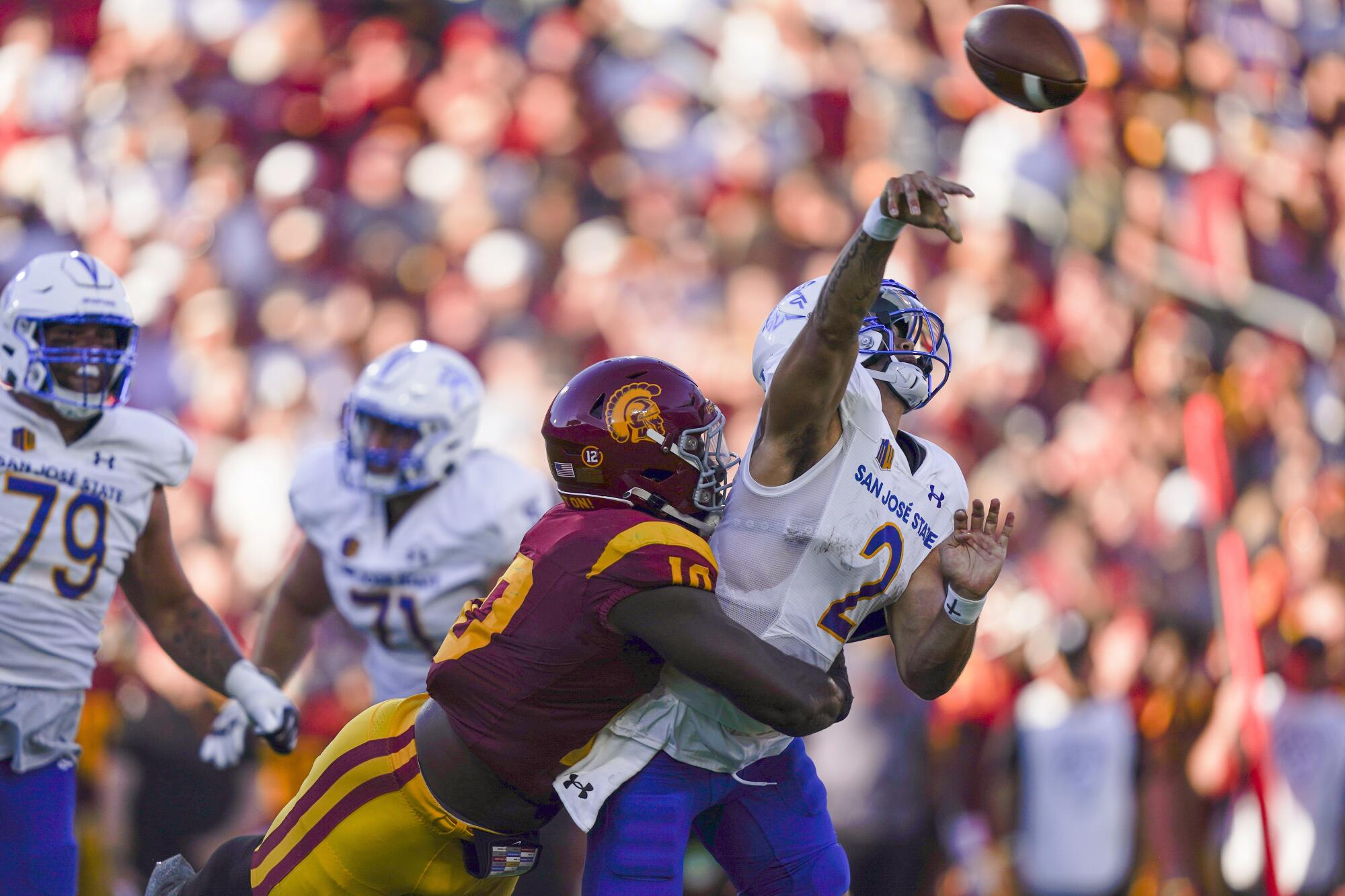
“I’d be lying if I said it didn’t creep up in my mind here and there,” Muhammad said. “But I try not to go there. The minute I do that in the game, I go from playing fast to then thinking too much.”
He tries not to think too much about what might’ve been, either. Could he have been a quarterback elsewhere? Where might he have been had he changed to defense years ago? The questions can eat you alive if you dwell on them too long, so Muhammad prefers to look at it this way:
What if this was always the plan for him?
“We all have this picture-perfect idea of what we want our lives to be,” Muhammad said. “But God has a funny way of slapping our hands and letting us know what his say on things are. I’ve just grown and learned to sit back and let him work.”
“When you do that, I think everything just flows the way it’s supposed to be.”
More to Read
Go beyond the scoreboard
Get the latest on L.A.'s teams in the daily Sports Report newsletter.
You may occasionally receive promotional content from the Los Angeles Times.

